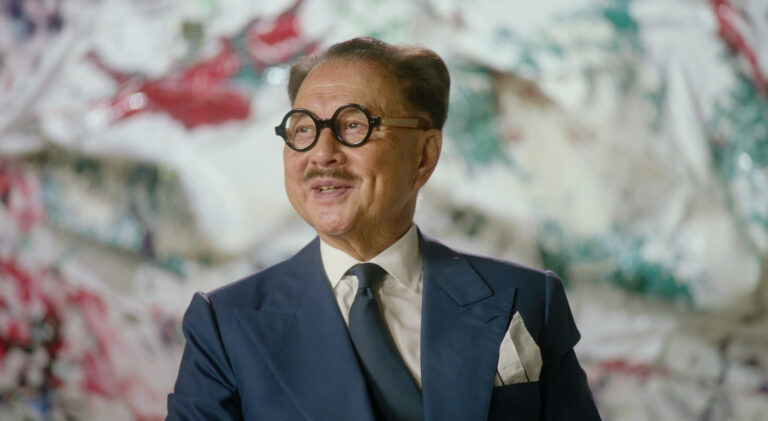
Synopsis : AKA MR. CHOW details the vibrant and varied life of Michael Chow. Born Zhou Yinghua in 1930s Shanghai, he would use creativity to triumph over childhood trauma, personal loss, and systemic prejudice, growing up to become the actor and artist before inventing a new identity, Mr. Chow, when he opens the first of his iconic restaurants. Having found fame and fortune in the West, Mr. Chow celebrates his Chinese roots and finds catharsis by returning to painting, reemerging as the artist M.
Genre: Documentary, Biography
Original Language: English
Director: Nick Hooker Nick Hooker
Producer: Diane Quon
Writer: Jean Tsien
Release Date (Streaming):
Runtime:
Distributor: Max
Production Co: HBO Documentary Films, Pulse Films
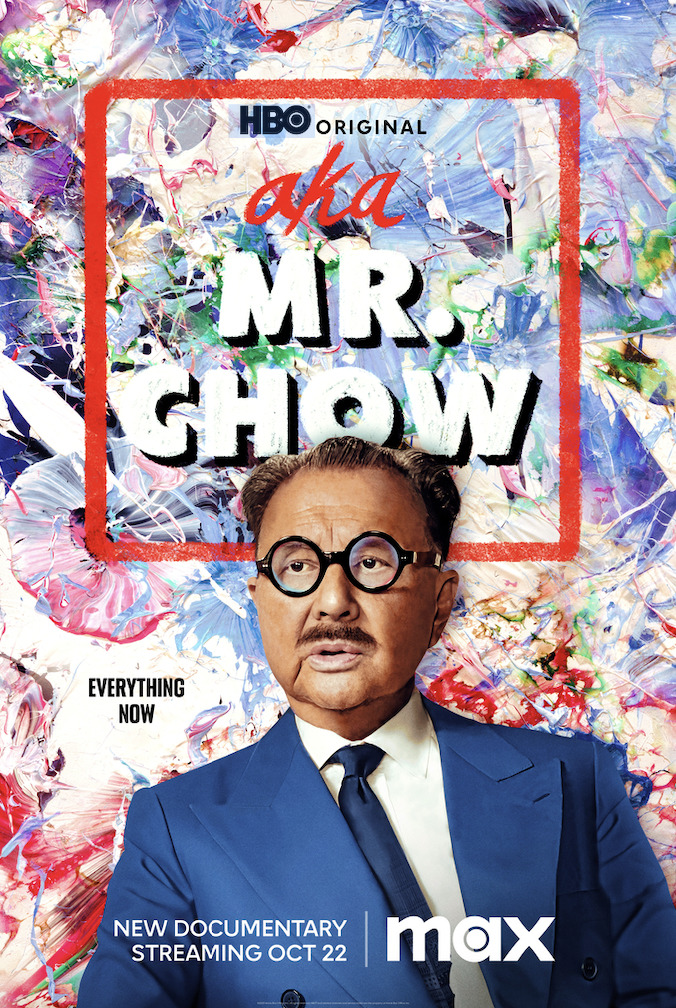
Exclusive Interview with Producer Diane Quon and Writer/Executive Producer Jean Tsien
Q: Diane, you made a movie “Mind in the Gap.” Jean, you worked on movies like “Apollo” and “76 Days.” What was the element that fascinates you about Michael Chow that made you decide to tackle this film?
Diane Quon: When I was approached to work on this film, I really didn’t know much about Michael Chow, other than the fact that he owned a restaurant and that it was famous, popular and survived for over 50 years. That was very amazing. I like to tell stories that matter and have a message behind it. I thought this is a way to tell a story, a biopic, about a famous person, an Asian person, which you haven’t often seen — someone with such an amazing life that will teach [and inspire others].
He has the platform to reach so many more people than, unfortunately, a lot of smaller personal stories. I wanted to be involved in a film about an Asian person that we typically don’t get on this platform and to make sure that also that this story is taught authentically and so I really want to be involved in it.
Jean Tsien: I am not a director. I’m an editor. That’s my career. For the longest time, I had no choice when a project came to me. but this one, when he came, I felt I was destined to really work on this film. Diane convinced me to work on it and at first I didn’t want to work on it because I wasn’t interested in the film about a restaurant. As an immigrant, my family and I grew up working in a restaurant at age 14. by 18, I just wanted to get out of the restaurant business.
My father was in business in a restaurant. when I heard, when they approached me, about Mr Chow, I said, no, I don’t want to work on a film and don’t want to hear anything. But then when I started researching it, so much of his story paralleled my father’s story. My father was born in Shanghai. Mr. Chow was also born in Shanghai and my mom was born in the same village as Mr. Chow’s ancestors in Ningbo, China. When you work on film, sometimes I feel that there’s a spirituality involved.
I feel sometimes I’m the chosen one to work on, to help tell the story. I saw that it’s also an opportunity for me to tell the story of my parents’ generation through Mr Chow. He is much more colorful than anyone I’ve ever known as a film subject, as an artist, or as a movie star. I’m not a star but a movie actor, and it’s so many things. He’s amazing when he says my life is melodramatic, I think that’s so true. This is probably one of the first melodramatic documentaries I ever worked on.
Q: Talk about Michael’s parents. Obviously at that time, to send a son or daughter to go abroad to study in England and other places, it was quite rare. His parents established their business and was successful enough to also send the family abroad.
Jean Tsien: That’s the research. That’s when I first researched that. If you want to know how the family started. It’s a long, long story about the father who was a grand grandmaster in Beijing opera. Mr. C’s mom came from a banker’s family and was a tea merchant as well — two families that had an amazing love story. Basically, Lillian eloped with Michael’s father at a very young age and she had three children before Michael.
There were three children and then there was William and Michael and a sick sister — number six in a big family. The cultural revolution came and they had no opportunity — they didn’t see any future for their children. Its opportunity arises. So they sent five out of six children out of China to study abroad — each one at a different time. Michael was the child left with Tai Qing, old sister number three, in London. There was a window of time they could get all the children out after the cultural revolution.
Some went to Hong Kong like Cecilia, some came to America to study at Columbia like Susan. They had the means, they were very well to do. When he said, “I grew up like a prince,” they had servants and a beautiful house in Shanghai because his father was very well known as a Beijing opera star, a Grandmaster. They were doing very well financially. When they got married, Lillian took over the business side. When you talk about the gangster, she had to fight the gangsters in the theater [world] because there was a money issue too.
Q: Part of the fascination about his parents was that his father shared a wisdom with him that, “wherever you go, you always have to remember that you are Chinese,” that’s a really important thing because when you go to other countries to live there for a long time, you’re try to soak yourself in the country to develop an attachment. But you forget about your roots— who you are — and get distracted. Did you think that it was important for him to know such a core notion that was considered over his life?
Jean Tsien: He lives by that [idea] every day. That’s the main reason why I signed up to make the film — the first time we just met on a zoom. He said, “I spent my whole life trying to pay tribute to my father.” That really moved me as part of an immigrant family. I lost my father who was a restaurant worker. How do I find a way to pay tribute to him? I did it through this film, but for him I’ve tried to be the best and to pay tribute to him.
Diane Quon: It definitely is a throughline through his whole life. That you see in the film too, and in everything he does, whether it was the restaurant or his artwork. Now it’s to show people about Chinese culture and in a way that you don’t necessarily see, especially in the United States. I think he sees himself as an ambassador, trying to bring East and West together. He talks about this often — that his art is a way to bridge the East and West. I see this in film, I feel a film is a way to bridge different cultures and understanding. That’s what I really hope this film does as well. I see that in his whole life, that’s what he’s been trying to do is help people understand Chinese culture in a way that we don’t usually see it presented.
Jean Tsien: I’m an immigrant. I was born in Taiwan. I left when I was 11 years old. I felt the experience that he had; when he did the goodbye scene in the restaurant when the father said, “Oh no matter where you go, always remember that you’re Chinese,” that was what happened to me.
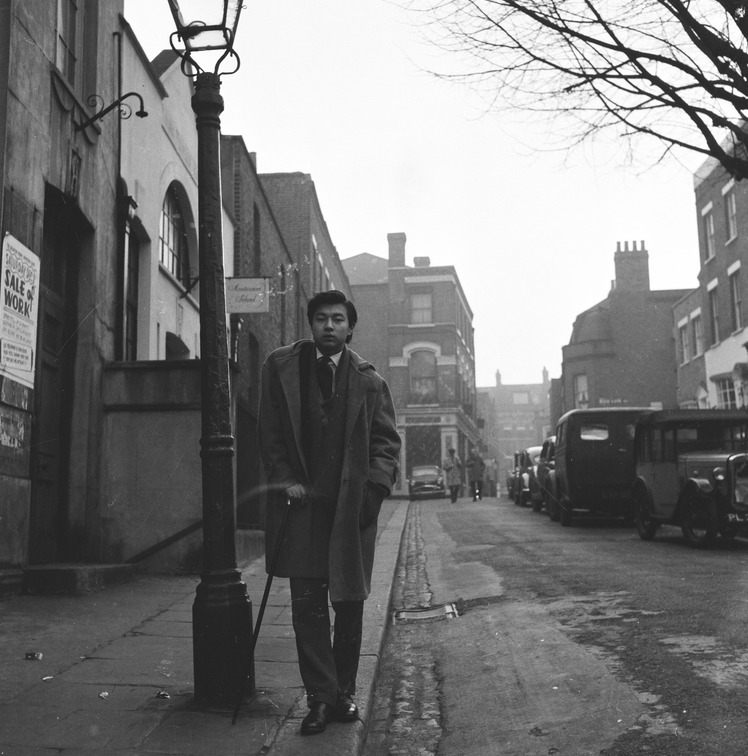 Photograph by Richard Lin/HBO
Photograph by Richard Lin/HBO
Q: So you really relate to that.
Jean Tsien: Oh yes, deeply.
Q: It must be such a transition for him to go abroad, particularly coming from being a spoiled child and completely separate from his native language then being deprived. He even said in the film about having a panic attack, and talked about the transition in those days because unlike now, you have so much information at the tip of your fingers through the computer and everything. It must be hard to blend into the country that he went to. Talk about that.
Jean Tsien: But that’s also my experience when I came to America. I only knew the 26 letters of the alphabet. I didn’t know any English. I understand what the bully was about. When he said “I was bullied,” it was probably much worse than what most Americans experience. There was a letter that he wrote at the end of the film, he showed the letter, he said I wrote that when I was 15 years old so I can read it now.
In that letter, he was writing to his brother-in-law asking for some electric pot. I think he just misses home so much. Talking about cooking rice, that simple thing. He was just a 15 year old that totally missed home. He was in a deep hole, and had no connection. The boarding school was brutal in the UK, this is what the director Nick Hooker had said as well when he went to boarding school in England. I just cannot imagine how he was treated.
Q: I was fascinated about his movie career because, in those days, there’s not so many Asian actors in the movie to begin with. He knows that he has to prove himself that he can act and can also be in a film with other white guys. Talk about his mentality in those days, even though he’s done studying to be a leader.
Diane Quon: What I learned when he was talking about his movie career was to eat the bitter pill that sometimes you have to do these difficult things. Take the harsh medicine, then move forward. In this case, it was taking roles that some may not really appreciate or were stereotypical, but it was a step that he had to do. He had to eat better to move forward. He was also trying to survive at that time too. We have to make choices when trying to just survive.
He was trying to be an artist. That was really difficult. He took these acting jobs to earn money. In the end, he had to take roles, but through many of them, he met all these celebrities and they ended up coming to his restaurant and building towards his success. It’s the idea that is for something better in the future. I talk about this a lot, that I’m going to make t-shirts with all these philosophies of his and his sayings. Anyway, that’s what I learned from him and his interesting movie career.
Q: He switched from it to establishing a restaurant. He named the restaurant Mr. Chow, that was really smart. In order for people to recognize him, made them called him Mr. Chow. That way he established himself but also, for other races to respect him. Would you agree?
Jean Tsien: He is one of the smartest people I know. Michael Chow is very clever.
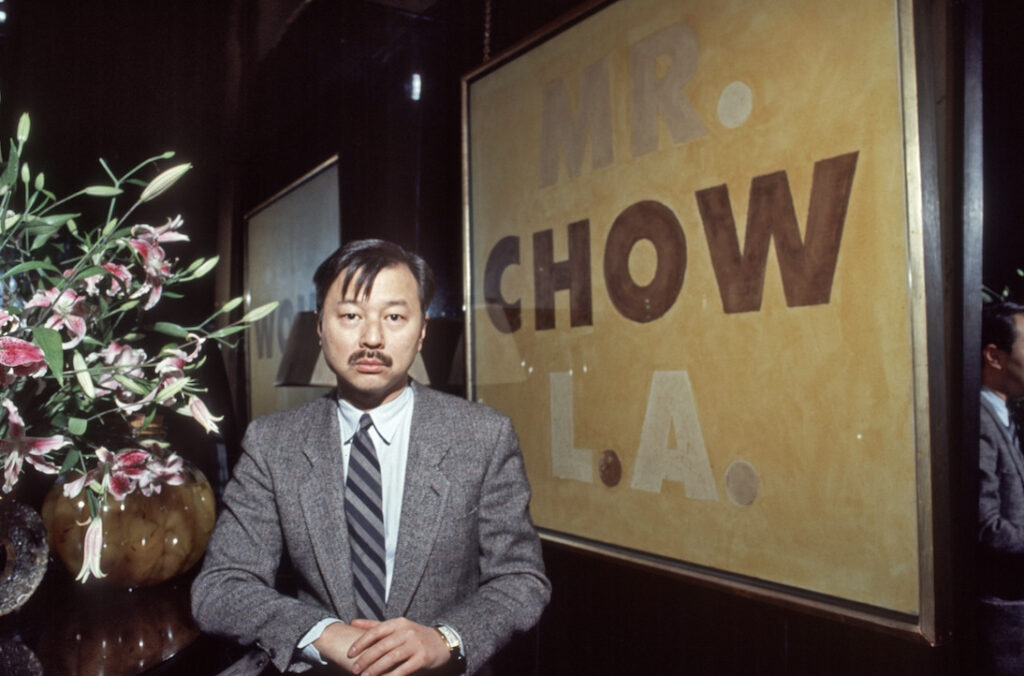 Photograph by Allan Tenenbaum/HBO
Photograph by Allan Tenenbaum/HBO
Q: Speaking of smartness, another genius he hung out with was Jean-Michel Basquiat. There’s a real connection there that something from being an outsider looking in, looking at America in a way that also is an artist connection. But they need to be connected in a way that’s different from other connections that he had with celebrities. Talk about his relationship with Jean-Michel Basquiat.
Diane Quon: I think we address it a little bit in the film and we had so much more about the relationship. Even Max and China [Chow] had close relationships with Jean. That part really spoke to me and how much that they bonded over art, but also about their experiences and the feeling of being outsiders. They both had to deal with racism and still experience it now in the art world.
There’s a bit of racism but he really bonded with Jean-Michel because of the fact that they’re both trying to fit into a world that they’re usually not accepted in. Jean-Michel felt safe when he was at Mr. Chow’s restaurant is like so many other artists like Andy Warhol. In the beginning, before he became big, he felt like an outsider.
That’s why Mr. Chow survived for so long — the restaurant too — because of himself and all his staff. His philosophy is to accept everyone you can feel safe at the restaurant. Max talks about his special relationship with Jean the show because he was like an uncle to him, his father was so close to him and you could see their photographs too.
Jean Tsien: If you look at the photographs with the candy shots, not the portrait shot of Jean Michel when he was with Mr. Chow, with Michael. The way he’s held; there was a birthday dinner and you could see how happy he was. He’s almost like a child and knowing what they both share as the racism in America grows, what they suffer outside of the restaurant. But inside they really become themselves.
Q: He loves the community and all those things, but he’s passionate about looking at the view of the camera. They have that approach through the restaurant back there. That was an interesting way to show that but in a way he probably revolutionized that idea.
Jean Tsien: CCTV. Yeah, that was a real surprise to find that story. Then when Max talked about, in the James Bond film, he played Inspector number four. And I said, “Wow.”
Q: Could you also talk about his fascination with Japanese culture and his meeting up with the love of his life, Tina. Tina changed his life in a way — their relationship was built on the foundation of her being a lady. In a way. It rejuvenated his life and at the same time, led to it going in the right direction.
Jean Tsien: He went to Japan because he was going to make that movie about Aikido. He was researching Haki. He went to Japan to research the movie. I forgot the details of making a movie in Tokyo, that’s when Antonio said, “Oh, you got to meet Tina.” Also there was a fashion designer he was really good friends with; I forget his name. His scope is so wide.
Diane Quon: To your point, it was an interesting period in his life. He had divorced Grace and was looking forward to meeting Tina when his friend fixed them up. You see on film, when he talks about Tina, you see how much love there was and how much he felt. She was beautiful inside and out. I think there was a wonderful love story here. But beyond that, they were really building Mr. Chow up together. They were together when London was taking off and then they went on to make LA and New York a success as well. The French were drawn to their restaurant because both Tina and Michael made it feel like it’s their home, greeting guests and all. I love that story between Eva and Tina and I’m glad that we were able to tell that piece of it.
Q: After you made this film, what elements did you learn from Michael that you want to apply to your life?
Jean Tsien: To put it simply — do not give up on your dream. I started out as an artist. When I was 14, I wanted to be a photographer but being an immigrant kid growing up in New York City, being an artist was not an option. So I went to film school which I thought was a little bit more practical than being an artist. I pursued filmmaking at age 18 and, fast forward, I’m 62 now. It’s OK to give you my age. Finally, if you look at the poster, that photo came from my I-Phone. I took that photo, and I felt that my dream of becoming a photographer finally got realized with this film. It’s not a huge achievement, but for me, it’s like, don’t give up your dream.
Diane Quon: I would say the same, also being older. I didn’t start making, producing documentaries until it became my second career. It was something I always wanted to do but I needed the gap with my first film. It was lucky that it did so well. It reminded me of telling them the story and I hope my kids feel the same. You don’t give up on your dream. I hope anyone who watches this is reminded that, if you have a passion, keep going for it and don’t be afraid to talk about it. Even though people try to push Michael down, he never hid his desire to be an artist. Even now, when people try to push him down, he continues to talk about it. For Asians, we tend to be humble but I think we should be able to talk proudly about what is our dream and not be afraid to pursue it.
Jean Tsien: One more thing I want to add is that, in the past three years, anti-Asian hate is at an all-time high. I worked on the Asian-American series about the history of anti-asian hate, and I never thought that it was going to take place again in my lifetime. What I learned from Michael Chow is that he’s proud, always building bridges between east and west, especially with China. With all the terrible things that have happened in the past three years, I learned how important it is to always find strength in fighting racism.
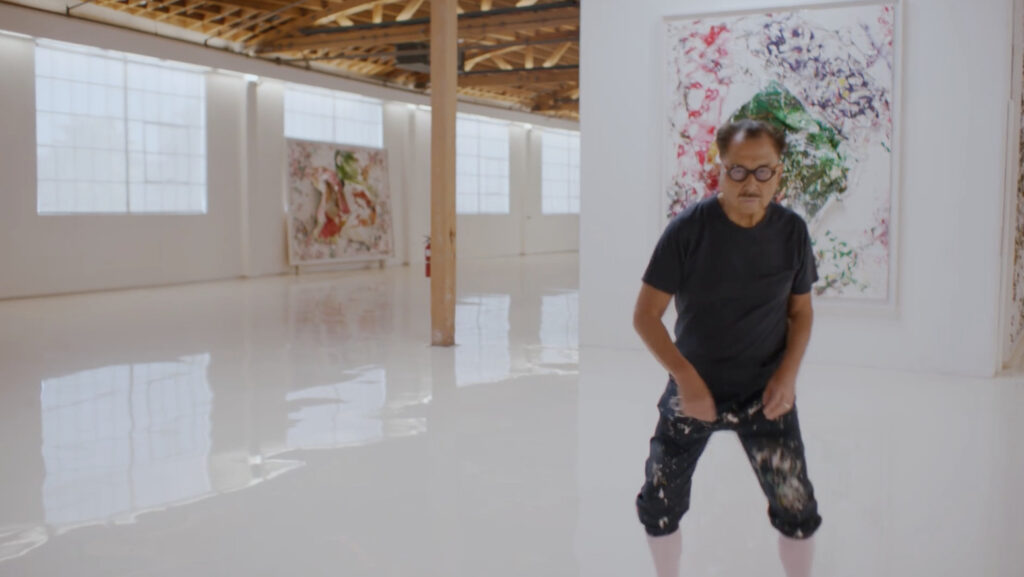
Photograph by Courtesy of HBO
Check out more of Nobuhiro’s articles.
Here’s the trailer of the film.

